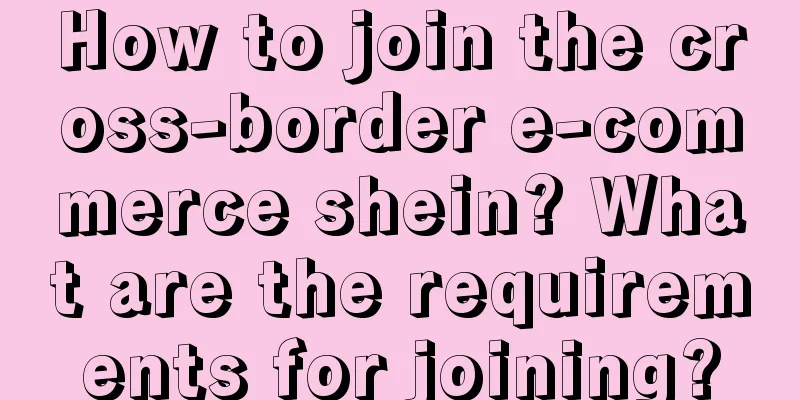Interpretation of Pinduoduo Temu’s Illegal Behavior

|
Pinduoduo Temu platform prohibits sellers from inducing third-party behaviors. Merchants are not allowed to induce or respond to users during chats, or go to third parties for communication or transactions. So what does inducing third-party behaviors include? Let's learn about the rules together. Third parties (i.e. outside the site) are not controlled by Temu, and Pinduoduo Temu cannot guarantee the security of activities outside the platform. Transactions and other activities conducted with third parties may involve risks such as fraud, phishing, or information leakage. In order to ensure the security of online transactions between both parties, Temu prohibits inducing third-party behavior. Merchants are not allowed to induce or respond to users during chats, or go to third parties for communication or transactions. 1. Inducing third-party behavior introduction Any behavior of merchants guiding users to leave the Temu platform or jump to other platforms for transactions or communication through external links, QR codes, contact information, social media accounts, etc., is considered as inducing third-party behavior. For the specific definition of inducing third-party behavior, please refer to the "Merchant Customer Service Management Rules". 1.1 What are the forms of inducing third parties? Inducing third-party behavior includes but is not limited to the following: (1) Exchanging any non-Temu platform accounts with users online or offline, including but not limited to: third-party application accounts, third-party website accounts, email addresses, network disk accounts, third-party subscription accounts, public account information, etc. (2) Online or offline, directing users to browse or download websites, content or applications that are not provided by the Temu platform and are not necessary for normal transactions or services. (3) Exchange mobile phone numbers, landline numbers or Facebook/WhatsApp contact information with users online or offline for the purpose of conducting transactions or receiving payments through non-Temu official channels. (4) Other forms specified in Temu Merchant Rules. Here are some examples: "How can I help you? My email address is [email protected]" "Add me on WeChat (vx): 12345, we have other new models that have not yet been put on the shelves" "You can purchase from our own website www.xxx.com.shop" "You can go to my Amazon store: xx store to buy" "Scan the QR code to enter my website to place an order" "Send me your phone number and I will contact you" "Send me your email address and I will send you other styles." "You go to WhatsApp: myshop to place an order" 1.2 What situations constitute serious violations of the law and inducement of third parties? Serious violations of the law include but are not limited to the following: (1) Inducing a third party and causing payment problems, logistics problems, after-sales problems, product quality liability, personal injury liability, etc., or the existence of such risks. (2) Inducing a third party, and the product itself is a prohibited product as stipulated in the platform rules or there are other violations. (3) Inducing a third party, and other situations that Temu has reason to believe may seriously threaten the personal, property safety or legal rights of users, Temu or any third party. (4) Other acts of inducing a third party that are deemed by Temu to be serious. 2. How can merchants avoid inducing third-party behavior? It is recommended that businesses do as much as possible: Avoid asking users to click off-platform links. Avoid sending mobile phone numbers, email addresses, social media accounts, etc. in chats. Avoid asking for users’ phone numbers, email addresses, social media accounts, etc. during chats. Avoid asking users to interact directly or indirectly if it is not related to Temu. Avoid direct/indirect redirects to external promotions or transaction pages. Avoid using special characters, similar characters, homophonic characters and other unconventional content in communication. Avoid responding to users' requests for offline contact and clearly inform users that all communications and transactions are conducted within the Temu platform. 3. Illegal handling of inducing third-party behavior Temu strictly prohibits any conduct that induces third parties. If any of the above-mentioned violations are found, Temu has the right to handle them in accordance with the Temu Merchant Service Agreement, Merchant Customer Service Management Rules and other regulations. Recommended reading: Temu issues children's products compliance notice Temu starts charging sellers commission What does temu sell to make money? What categories sell well? |
<<: How to be a shein agent? Can shein make money?
>>: How do I fill in the shein address? How do I return a product?
Recommend
In which month is Amazon Black Friday? What should I pay attention to when shopping?
Amazon Black Friday in 2021 should be an extremely...
What are the characteristics of cross-border third-party payment platforms? Is it convenient?
Now everyone wants to do cross-border e-commerce, ...
What is the Amazon Japan support package for new sellers?
Starting from March 1, 2022, Amazon will once agai...
From Haidilao to Pangdonglai, has service become a new marketing trend?
This article tells the reasons why Pang Donglai be...
How to set up free shipping on Shopee? What is the method?
Merchants who open a store on Shopee need to under...
What are the main types of cross-border e-commerce B2B merchants? How are they classified?
Merchants on cross-border e-commerce platforms mus...
Write an activity review report, this is the best step I have ever seen
Why is writing an activity review report the best ...
How many points will Shopee deduct for delayed delivery? How to avoid delays?
As one of the most promising e-commerce platforms,...
When advertising on Xiaohongshu, please focus on these two indicators
In the marketing battlefield of Xiaohongshu, tradi...
Why can't I change the Amazon subtitle? What's the reason?
Amazon merchants need to upload products after ope...
Unveiling the secrets of leveraging marketing: value benefits, six common methods, and the "three degrees" that need to be paid attention to
In the brand communication strategy, leverage mark...
2023 Shopee Seller Deposit Payment Reminder
Starting from April 13, 2023, the platform will re...
What is Shopee commission? What are the commission standards?
The operation of each Shopee site is different, an...
Young people are scrambling to buy substitutes, but are factories really making money?
Young people are now more looking for substitutes,...
Talk about brand building
If you want to build a good brand, it is essential...









